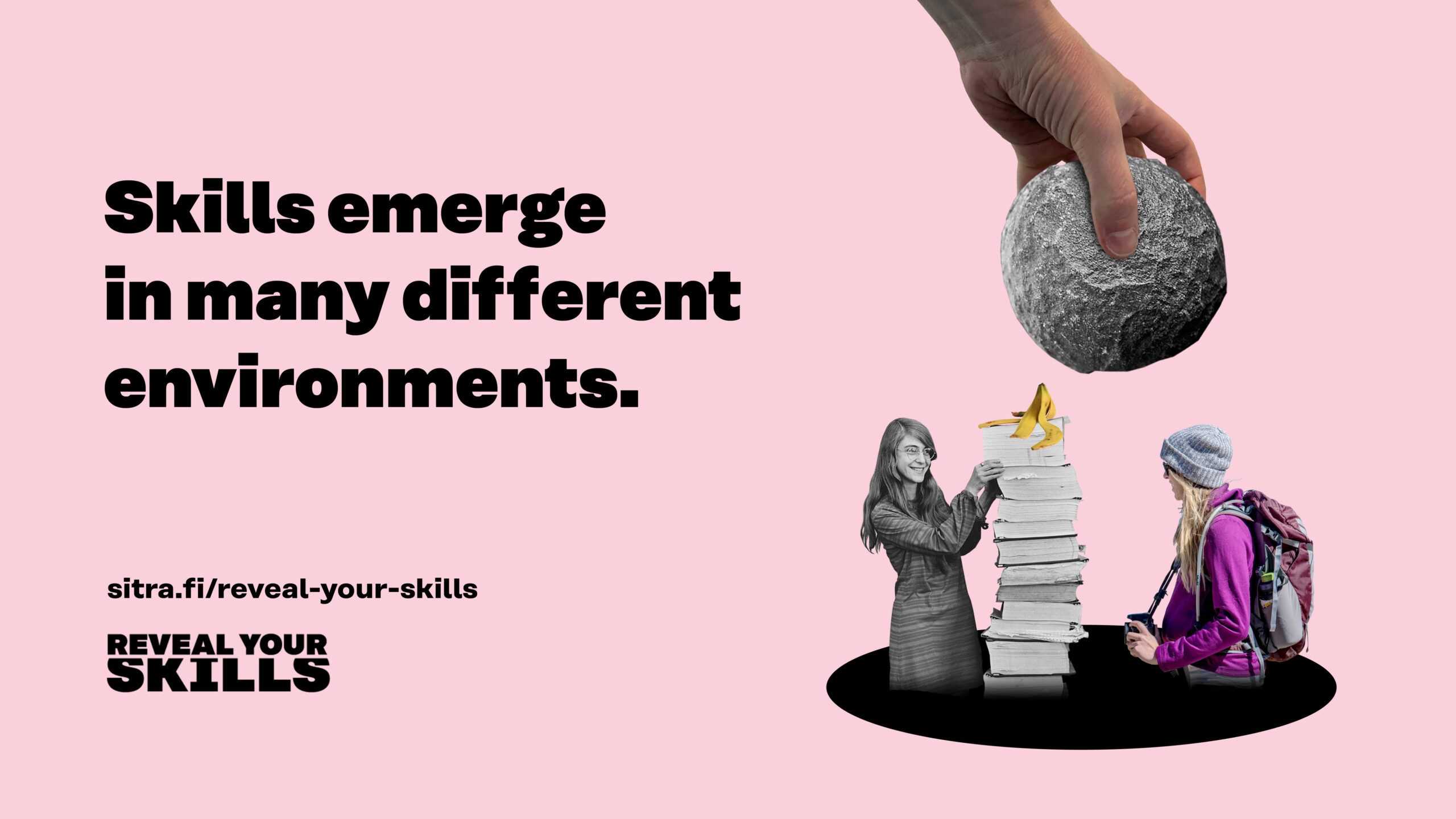The traditional university path is to register, enrol on courses, sit exams, write learning journals and a thesis, and finally graduate. Study records and degree certificates provide recognition and give credit, and leave students with something to show for all the hard work they have put in. There is no similar process outside our education system, which is why making visible what we learn at work and through hobbies is left to the individual. This is why we are encouraged to make our achievements noticeable. It is an important viewpoint, because it emphasises the versatility of both the learners and what they have learned.
Higher education institutions have begun to consider what skills students actually accumulate and, in particular, how to make this visible. Universities have accepted the challenge by paying more attention to helping students identify what they have learned, whether it concerns a single course or an entire degree. The targets for learning are all the time becoming more clearly stated in the curricula, intranet and lecture material. Universities also offer students support to find work in the form of jobseeking and CV clinics.
Although this development has been quick and welcome, it is not enough on its own. Not even the best skills-based CV will help unless the person doing the recruiting is able to recognise and appreciate it. The accumulation of skills and making them visible is all too often seen as something quite different from degree studies. The idea is to give due credit to learning accumulated on the job or during leisure activities. Another problem is that higher education is considered to provide a very narrow type of learning. Only a small part of what the student has actually learnt is visible in their degree certificate.
Universities are lively communities, places where people meet, learn and explore, creating a wide variety of expertise. University students learn about different disciplines, learning environments and methods. Maybe the most important skill is to learn and internalise new ideas, which university graduates often value as the most valuable outcome of their studies. First and foremost, a university education creates a foundation for accumulating further competence. I therefore call for bold recruiting decisions beyond subjects and minimum requirements, and recognition of the richness of a university community.
And lastly, we mustn’t underestimate the importance of a feeling of community. It is often the case that any talk of accumulating skills and making them visible is left to the individual alone. Let’s not leave people on their own, but realise the potential and live up to our responsibility as a community.
Ainomaija Rajoo
Education Policy Adviser (quality of education, studies, working life)
ainomaija.rajoo@syl.fi
+358 (0) 41 515 2231
This article is part of the ‘Reveal your skills’ weeks of the Finnish Innovation Fund Sitra. The goal is to encourage and help people become more aware of their skills and to make them more visible.





